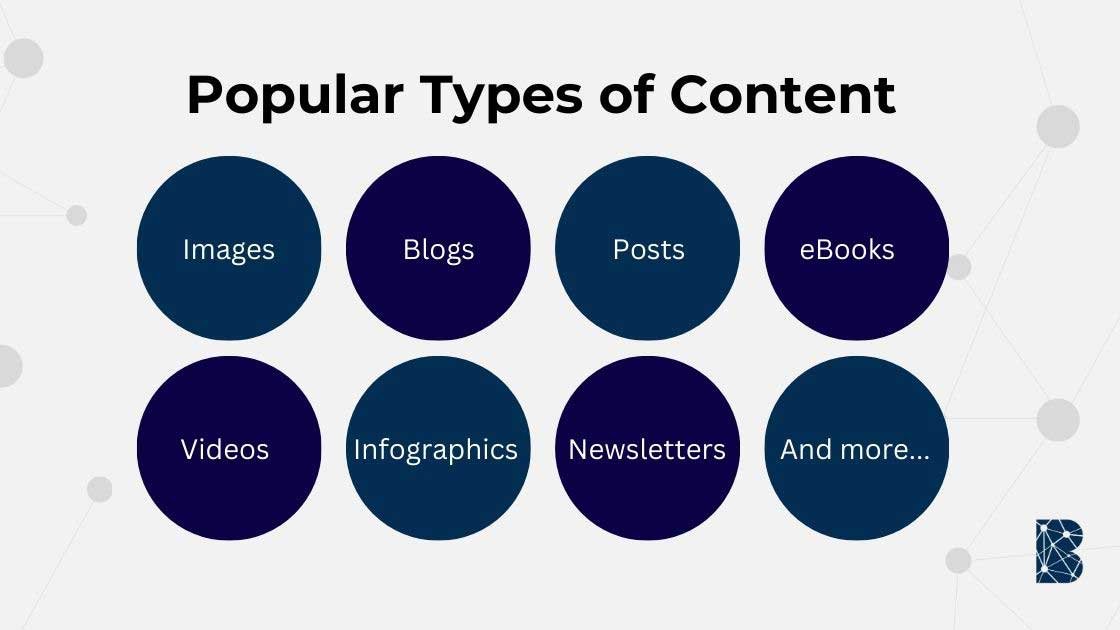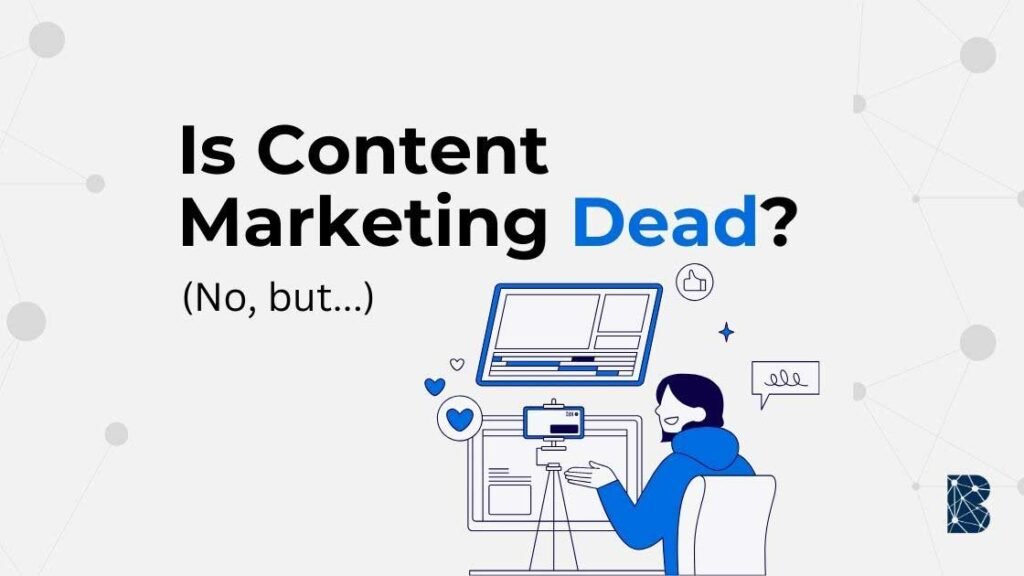Short Answer: Content marketing is not dead.
Long Answer: In 2024 there are a lot of discussions if content marketing is a worthy investment for companies. It is a fact that it’s a long and expensive process for any business so wouldn’t it be better to invest in paid ads? Not exactly. With the rise of social media usage and search engine searches we can guarantee that content marketing is going nowhere.
Content marketing continues to be a highly valuable and effective marketing channel. With a lot of benefits for any business.
Content marketing for small businesses
Content marketing is an important tool for small businesses. Traditional advertising can be expensive and intrusive. Content marketing allows businesses to build trust and engage with their audience, through valuable and relevant content.
By creating and sharing informative content, small businesses can attract and retain customers, ultimately driving profitable customer action.
Small businesses often have limited marketing budgets. That is why they can benefit from content marketing the most. It allows them to establish authority in their industry. Connect with their audience on a deeper level, and improve their online visibility.
Effective content marketing strategies for small businesses include blogging, social media posts, videos, newsletters and other. Each of these formats can help to tell a brand’s story, show its expertise, and provide value to its audience.

Content is Driving Sales
One of the primary goals of content marketing is to drive sales. Create content that addresses the needs and pain points, and guide them through the marketing funnels. This is the core concept of content marketing. Informative blogs, case studies, and how-to guides can help potential customers understand the benefits of your products. And how they solve their specific problems.
For instance, a small business selling eco-friendly cleaning products can create content that educates customers about the harmful effects of traditional cleaning products and the benefits of switching to eco-friendly alternatives. This type of content not only informs but also positions the business as a trusted resource, making customers more likely to make a purchase.
Additionally, content marketing can improve your website’s search engine ranking, making it easier for potential customers to find you. By optimizing your content with relevant keywords and phrases, you can attract free organic traffic to your website. Once visitors land on your site, engaging and informative content can convert them into paying customers.
Tips to Make Better Content
Creating high-quality content that targets your audience’s pain points and results is crucial for the success of your content. Here are some tips to help you create better content.
Understand Your Audience
Knowing who your audience is and what they are looking for is the foundation of effective content marketing. Conduct surveys, engage in social media conversations, and analyze website traffic data to gather insights into your audience’s preferences and pain points.
Set Clear Goals and Objectives
Before creating content, define what you want to achieve. Whether it’s increasing brand awareness, driving traffic to your website, or generating leads, having clear goals will guide your content creation process.
Tell a Story
Storytelling is a powerful tool in content marketing. Use stories to humanize your brand, connect with your audience on an emotional level, and illustrate the benefits of your products or services. For example, share customer success stories or behind-the-scenes looks at your business.
Write Meaningful Headlines
Your headlines are the first thing readers see, so make sure they are attention-grabbing and concise. Use numbers, ask questions, or create a sense of urgency to entice readers to click on your content.
Use Visuals
Visual content, such as images, infographics, and videos, can enhance your written content and make it more engaging. Visuals can help to break up text, illustrate points, and keep readers interested.
Optimize for SEO
Incorporate relevant keywords throughout your content, include it in titles, meta descriptions, and main text. This will improve your content’s visibility in search engines and the ranking of the website.
Provide Value
Ensure that your content adds value to your audience. Whether it’s solving a problem, answering a question, or providing new insights, valuable content will keep your audience coming back for more.
Be Consistent
Consistency is key in content marketing. Develop a content calendar to plan and schedule your content in advance. This will help you stay organized and ensure that you are delivering fresh content to your audience.
Quality Over Quantity
In the early days of content marketing, the focus was often on producing as much content as possible. Today it’s the opposite. Quality will always win over quantity. High-quality content is more likely to be shared, linked to, and remembered by your audience. It can also improve your search engine rankings and establish your business as a trusted authority in your industry.
Creating quality content involves thorough research, careful planning, and attention to detail. It’s better to produce fewer pieces of content that provides real value , than to mass post a high volume of mediocre content. Focus on creating content that is well-written, informative, and visually appealing.
Conclusion – Is It Dead?
While the trends of content marketing constantly change, its basics remain the same. Content marketing continues to be a powerful way for small businesses to build brand awareness, engage with their audience, and drive sales.
To succeed in content marketing, small businesses must adapt and innovate. This means staying updated on the latest trends, leveraging new technologies, and continuously refining their strategies based on data and audience feedback.
